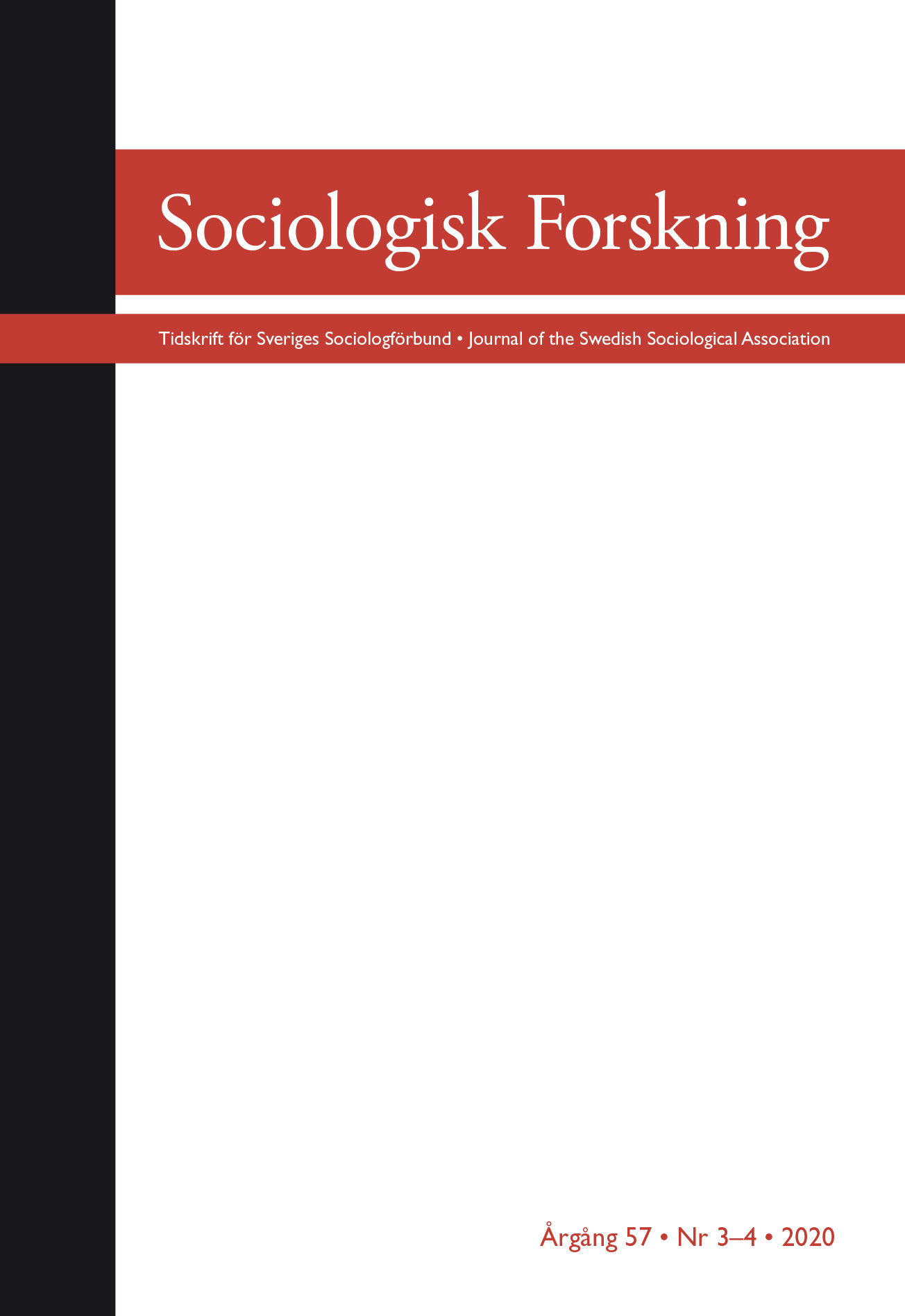A mute world? On resonance, social responsivity and burnout
DOI:
https://doi.org/10.37062/sf.57.21831Keywords:
resonance, burnout, stress, modernity, social accelerationAbstract
This article focuses on Hartmut Rosa’s concept of resonance and Johan Asplund’s concept of social responsivity, which are compared theoretically, and with regard to how they are used to describe the phenomenon of burnout. Both concepts describe fundamental human relationships and how we become individuals through interactions with others. The concepts are partly concerned with different analytical levels, where social responsivity is an elementary behaviour, while resonance also includes advanced social behaviours related to the search for meaning in life. In practical use, related to burnout, the concepts have both similarities and differences. Asplund has a narrow perspective on burnout, defined as lost social responsivity, unrelated to exhaustion. Rosa describes burnout as loss of resonance and reciprocity to the world, with exhaustion as a potential cause. Both Rosa and Asplund share a broader sociological analysis of the phenomenon as a consequence of the organization of society. They both express criticism against how it is often managed, where persons with burnout are left to take responsibility for problems outside their control.
Downloads
Published
How to Cite
Issue
Section
License
All content in Sociologisk Forskning is published with immediate open access, under the Creative Commons license CC BY-NC-ND 4.0.
All content may be read, downloaded, shared and printed for non-commercial purposes, free and without fees. Contents may not be altered. When content is reused, author, source and a link to the copyright licence must be provided. The author retains copyright to their content. No publication fees are charged.





